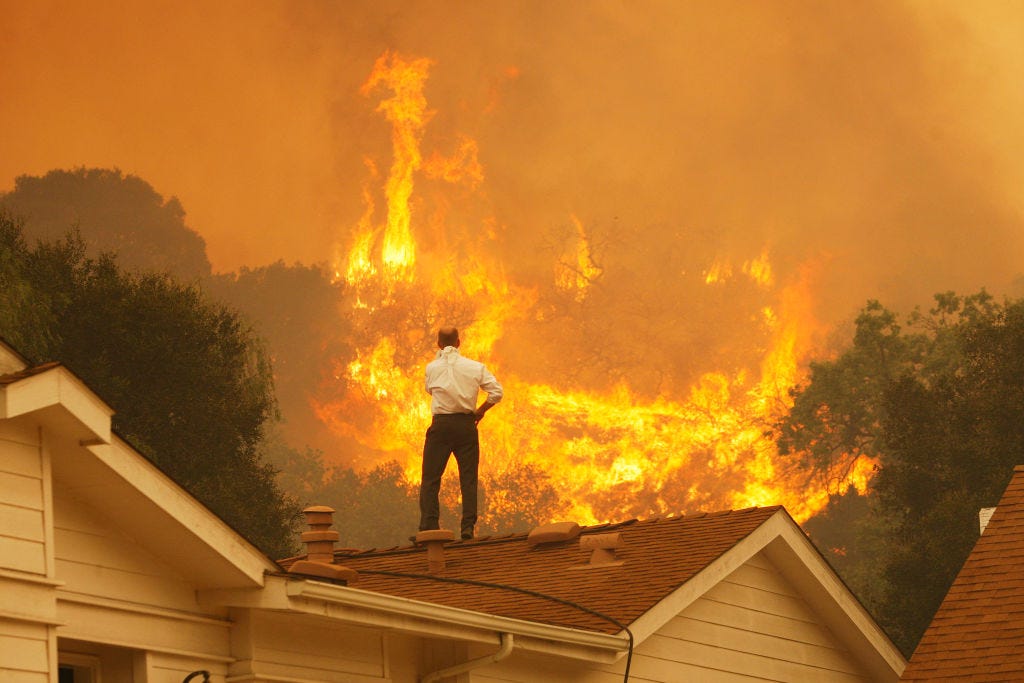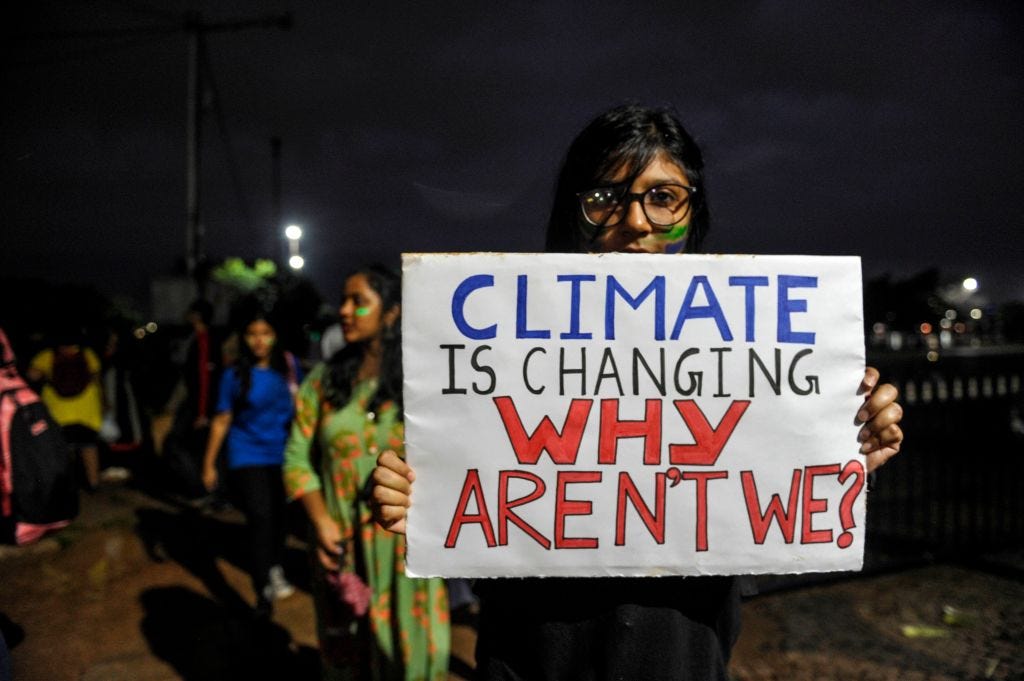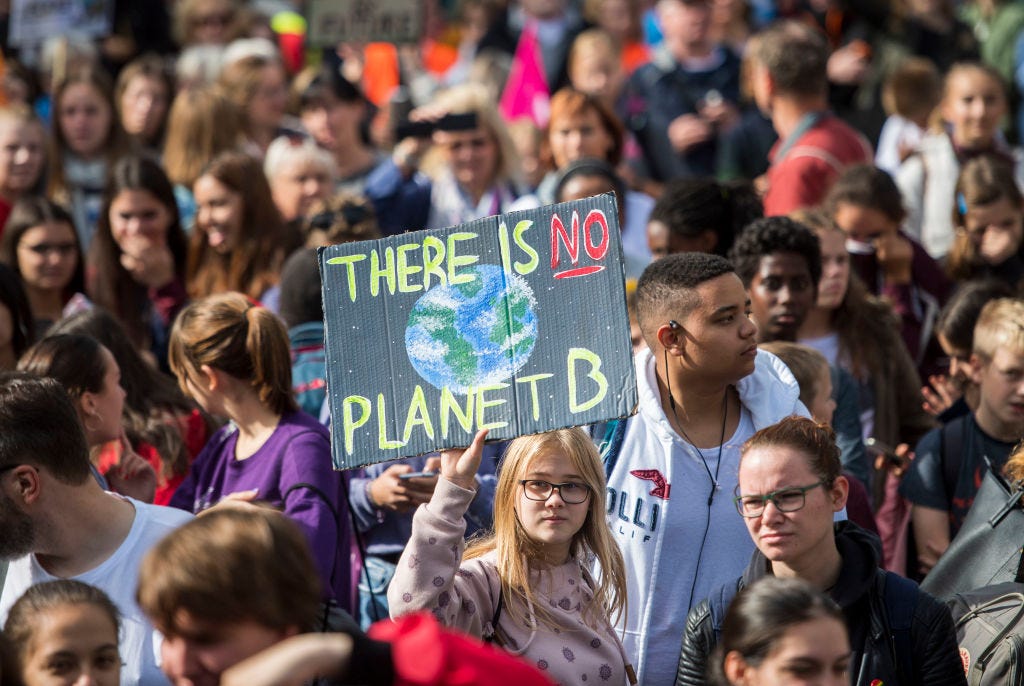What was the biggest news story today? There are so many contenders. COVID, of course, and all that entails, and enrages, and frightens. There’s also the fact that the previous president conspired to overturn a democratic election. There is the ongoing racial injustice and the need to reckon with our past. And there is also no shortage of foreign but still urgent concerns, like the Taliban advances in Afghanistan, Putin’s meddling, and on and on.
But in some ways the question of the biggest story is also a question of perspective. Because there is a story, or more appropriately countless interconnecting stories, that pulse beneath the newscycle’s status quo. Every so often these stories burst through into our global discourse, like today, with an alarming (to say the least) report on a set of facts we already should know, but are desperately in need of rehearing.
Our planet, our home, faces an existential threat — to the survival of our species (to say nothing of the rest of Earth’s biodiversity). It’s all due, of course, to a climate in crisis. And it’s getting worse. We can see the results, measured in pain and suffering — heatwaves, storms, droughts, wildfires. Extremes are now commonplace. And we are to blame. That means if we have any hope of pulling out of this spiral, it will be up to us, and only us, to act. And by us I mean human beings, but particularly those of us in the industrialized world who have caused the greatest emissions of greenhouse gasses and thus bear the greatest responsibility to clean up the mess.
But since we are human, a desperate need for progress competes with our other urgencies. We are preoccupied with the immediate threats and seem unable to plan for the difficulties of a future century. But if we punt on the climate, relegate it to a distant fear, we will reap the bitter fruit of our shortsightedness. The consequences of our action, or most importantly inaction, are not far off. They are coming swiftly. Climate change is impacting us here and now.
We need to turn our attention. We need to act - now. We need to conquer the naysayers who muddy legitimate concerns by their lies and cynical play for our disastrous current course. Today’s UN’s Intergovernmental Panel on Climate Change (IPCC) lays out a dire and devastating assessment — a “code red for humanity.”
So the question is, how do we move forward? How do we not get paralyzed by fear? How do we find hope to do what we can in the face of odds that seem so insurmountable? We know the steps we must take. Climate scientists and activists have laid out plans and proposals for years. It is a challenge of our will and our imagination. We are being tested.
We can find answers both behind us and ahead of us. When we look to history, when we widen our perspective, it’s clear that these challenges are not new. There have been many points in our past where we were able to claw ourselves back from the point of failure. We have seen that in wars and social movements, but also when it comes to the environment. The mighty American bison were on brink of extinction when we decided to act, and many other species have been protected. We have cleaned up our waters and our air. We have decided that land must be saved in its natural state. These battles still continue, but those who came before us have provided blueprints for action, and hope. Likewise when we look to the future, we see progress, in clean energy, in how we build our homes, in how we move around. And most of all, we can look to the generations on the rise, who understand that the climate crisis is the biggest threat of their time, and all those who will follow.
So it is incumbent on all of us to not buy into cynicism. Yes, the damage to our ecosystems have been great. Yes, some of that harm is irreparable. Yes, the stakes for our livelihood are high. But those truths cannot become barriers to action. Amidst the grim predictions for our planet, scientists point out there are also reasons for hope. If we look to science for new insights and technologies, if we reduce greenhouse gases and remake a carbon-neutral economy, we can position ourselves into the best-case scenario. All is not lost. Every step we take has the potential to limit disaster. But only if we stay engaged, only if we hold onto hope.
I understand that there are many legitimate reasons for pessimism. I see science attacked and progress derailed by the same destructive forces attacking so many crucial elements of our collective health and wellbeing. But I also see those rising in opposition. Energy is on the side of change and the efficacy of our actions depend on our ability to imagine a better future. We have to be strong enough to believe we can make a difference. I do.
I would like to urge you to stay steady. Do not shift into despair. Do not give up on us. Do not give up on Earth.
I hope to continue to build a community here on Steady. If you aren’t already a subscriber, please consider signing up to a free or paid subscription. You can also leave a one-time tip to support our work. And if you are already part of our family, please consider sharing this post — and Steady — with others.






Thank you
I would like to have a list of acts that individuals can take in their daily lives to help our planet. Very specific actions. I think sometimes there is a a general assumption that we as individuals know what to do … but I actually don t think we do .